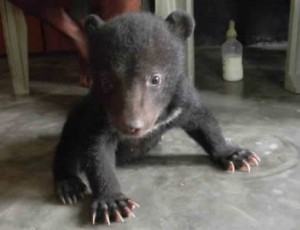 The CWRC (Centre for Wildlife Rehabilitation and Conservation) Transit Home in Kokrajhar became home to two wild Asiatic bear cubs earlier this month when villagers carried them from the forest thinking their mother had abandoned them. The bears will now live in the centre till they are ready to be released again in the wild.
The CWRC (Centre for Wildlife Rehabilitation and Conservation) Transit Home in Kokrajhar became home to two wild Asiatic bear cubs earlier this month when villagers carried them from the forest thinking their mother had abandoned them. The bears will now live in the centre till they are ready to be released again in the wild.
Assam forest department officials had confiscated the cubs from villagers who thought that the cubs had been abandoned by their mother. The cubs were barely a month old, a male and a female and had been found by the locales at a tri-junction of Bhutan, Assam and Arunachal Pradesh.
The officials feel that it was a wrong move made by the villagers as no mother usually leaves her cubs unless she has been killed or disturbed.
“No animal will abandon her young ones, unless she has herself been killed, or disturbed till driven away,” says Dr NVK Ashraf, Chief Veterinarian, WTI. “There have been numerous cases of young ones left alone in the forest with the mother probably foraging or hunting being picked up by villagers. This results in forced separation and needs to be tackled through education and awareness at the grass-root level.”
When the cubs were later handed over to the vet team at the transit home they were weak and dehydrated.
“When we brought the cubs here first, they were dehydrated and weak, but otherwise healthy. The cubs have now recovered and are stable. They are being bottle-fed now; soon we will start giving them solid food,” said Dr Basumatary.
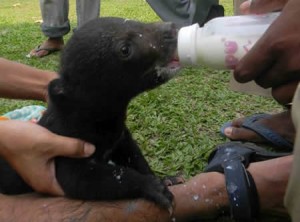 There is a certain procedure now that will be followed before they are released into the wild. They will be hand raised by humans in the centre, bottle fed, then a suitable location will be selected for their release. They will then be acclimatised into the new environment for a certain period of time before they are radio collared and formally released.
There is a certain procedure now that will be followed before they are released into the wild. They will be hand raised by humans in the centre, bottle fed, then a suitable location will be selected for their release. They will then be acclimatised into the new environment for a certain period of time before they are radio collared and formally released.
The centre already has an experience of raising and rehabilitating 11 Asiatic black bears.
-Atula Gupta
Article source: WTI
Image courtesy: Dr Panjit Basumatary/ WTI
Related Stories:
Why India is Losing its Sloth Bears
Delhi Zoo Welcomes Baby Himalyan Black Bear


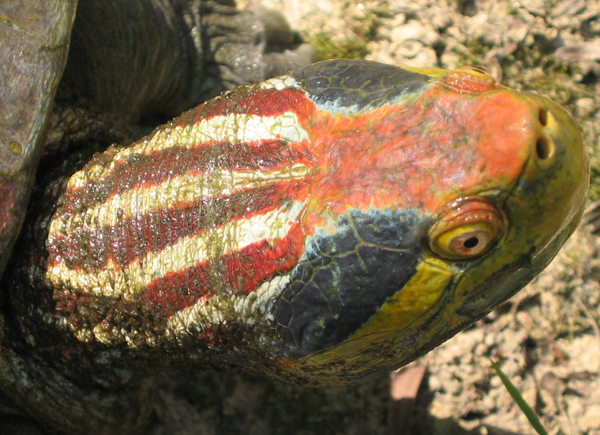
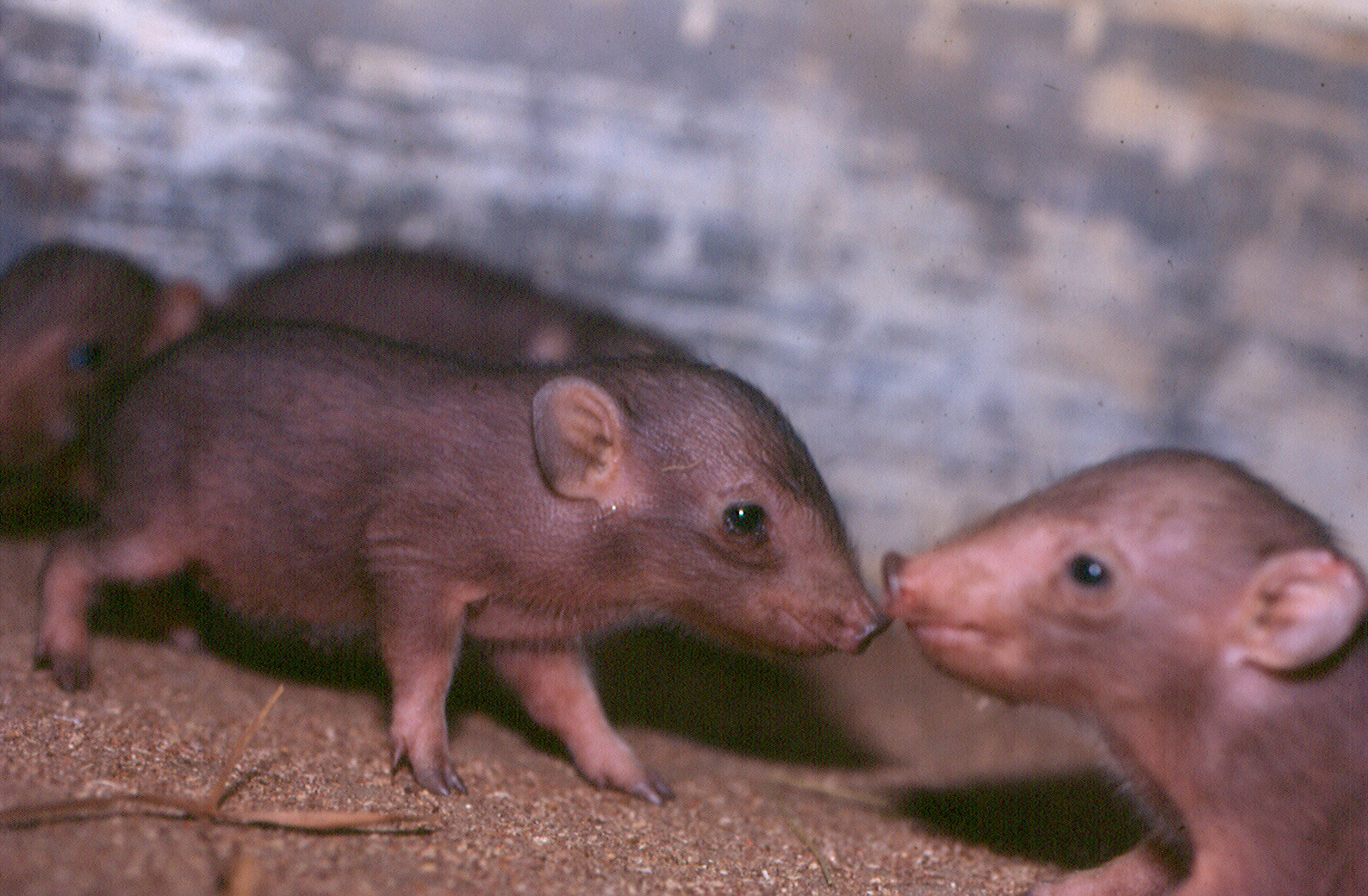

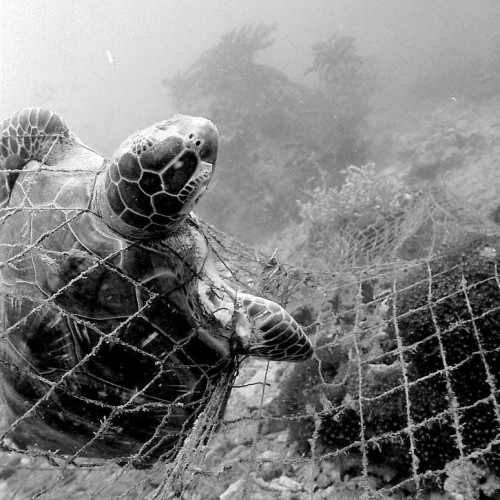
2 thoughts on “Bear Cubs Get a Second Chance of Life at Assam Rehabilitation Centre”